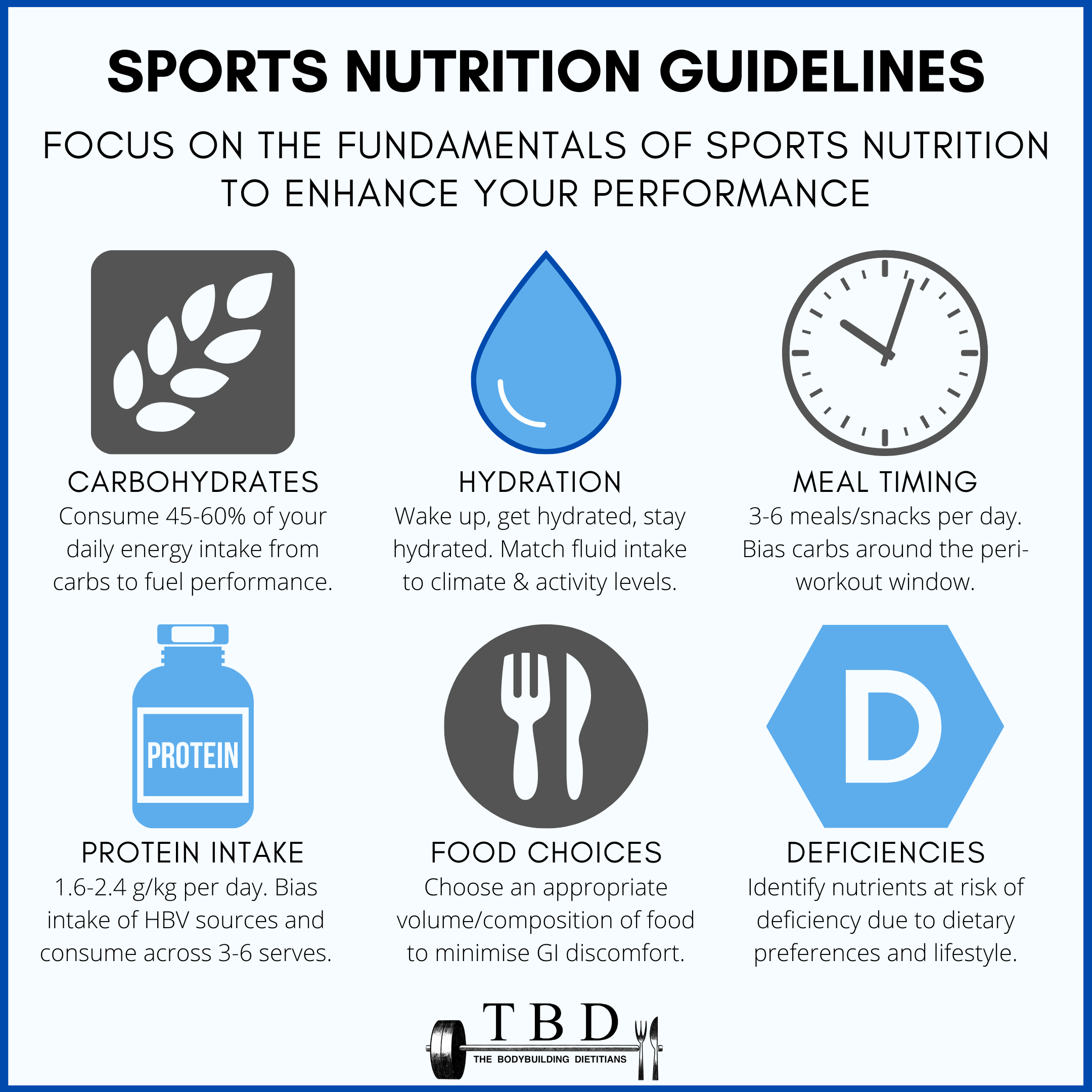Tick the big boxes FIRST!
When it comes to enhancing exercise performance we understand that it’s easy to get caught in the weeds. Supplement protocols, superfoods, anabolic windows and the like can unfortunately blind us from what’s most important – nailing the basics.
1.) Carbohydrates – Aim to consume 45-60% of your total daily energy intake from carbohydrates. Sources should be obtained predominately from a variety of grains, fruits and vegetables.
2.) Fluid Intake – Even a 2% loss in BW from fluid can negatively impact performance. Therefore, stay well hydrated throughout the day, match fluid intake to fluid loss, and ultimately drink to thirst.
3.) Meal Timing – Aim to consume and evenly distribute 3-6 meals/snacks throughout the day. Peri-workout meals should be consumed within 4-6 hours of one another to support performance and recovery.
4.) Protein Intake – Total daily intake should range between 1.6-2.4g/kg/day. Aim to consume 0.4-0.55g/kg of an HBV protein source at each main meal to maximally stimulate muscle protein synthesis and satisfy reaching your leucine threshold.
5.) Food Choices – Consume foods that you digest well, enjoy the taste of, and make you feel your best! Aim for at least 14g of fibre per 1000 calories consumed to support regular digestion.
6.) Nutrient Deficiencies – The most objective way to identify nutrient deficiencies is through blood work. Common deficiencies include iron, vitamin D, zinc, folate, iodine, B12, DHA (omega 3’s), and calcium. We recommend having blood work done every 6-12 months to ensure you are well nourished, otherwise book in a comprehensive dietetic recall with a qualified dietitian to identify any potential nutrients of concern!
Let us know, which nutritional changes have had the largest influence on your training performance?
